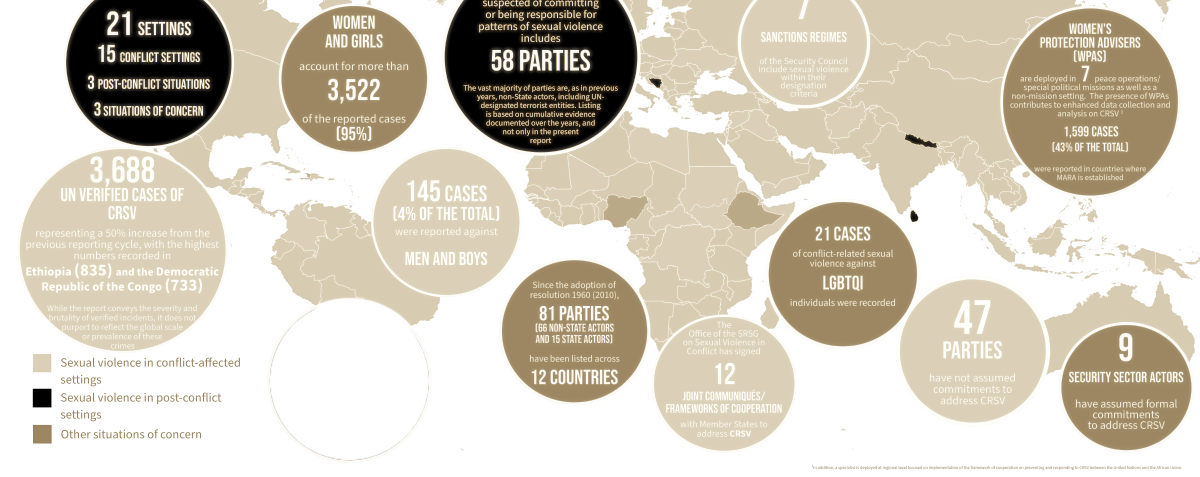Part of the factsheet from the 2023 Report of the Secretary-General on CRSV.
Since the Security Council first recognized conflict-related sexual violence (CRSV) as a threat to international peace and security in 2008, the United Nations (UN) has developed an increasing number of pathways to prevent and respond to such crimes. One of these pathways is the annual report of the Secretary-General on CRSV, which includes an annexed list of perpetrators who are credibly suspected of committing or being responsible for patterns of CRSV violations in contexts on the agenda of the Security Council. This list can be a tool to publicly name perpetrators and to open a door for engagement that may facilitate changes in behavior.
The second tool is UN sanctions. Some sanctions regimes have designation criterion that allows for perpetrators of sexual- and gender-based violence (SGBV) to be sanctioned for committing these violations. (Whereas the Secretary-General reports on patterns of CRSV, sanctions regimes use the broader term “SGBV.”)
Over the past two decades, the UN Security Council and Secretariat have attempted to increase the links between the CRSV agenda and sanctions regimes. The Secretary-General has also consistently recommended increasing the links between the annual reports and sanctions. Based on our research, we found that overlap between the two remains limited, and there are opportunities to enhance their complementarity. We also found constraints on the panels of experts collecting evidence on SGBV cases as mandated by the UN Security Council, in addition to political barriers within sanctions committees.
For our analysis, we focused on two aspects: (1) understanding the level of coherence between the parties listed in the annex of the annual report and sanctions and (2) analyzing how sanctions have been used in response to SGBV. To make this determination, we looked at overlap in two ways: first, whether parties who appear in the annex are also designated for sanctions, and second, whether the party is specifically sanctioned for committing SGBV (as opposed to a different violation under the regime). Read more





